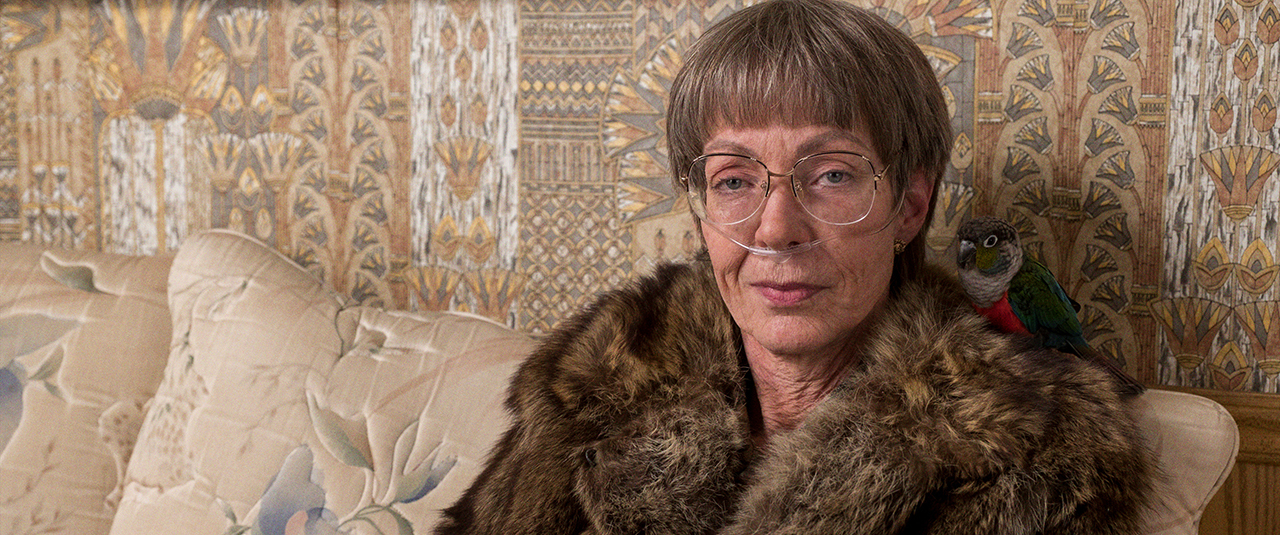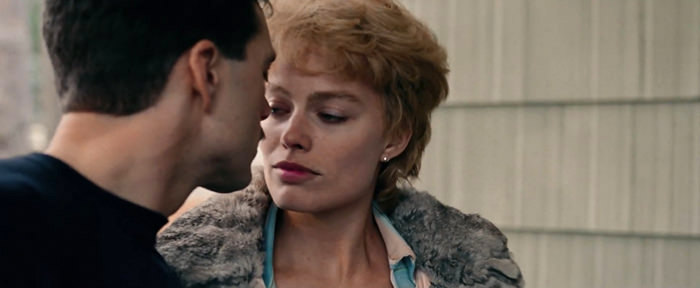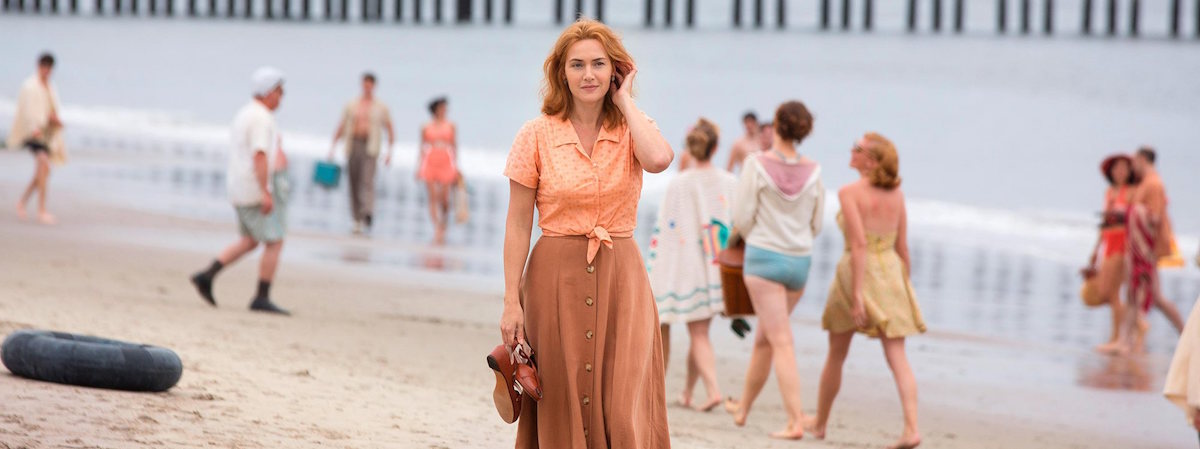By Pamela Zoslov
Actress Margot Robbie can be forgiven for not having heard of Tonya Harding, the champion figure skater implicated in a violent attack on Olympic rival Nancy Kerrigan in 1994. Robbie was born in 1990, and in Queensland, Australia at that.
Still, Ms. Robbie is a fine Tonya Harding in the black comedy I, Tonya, which uses a zesty mock-documentary format to tell the story of the talented athlete who achieved infamy in a scheme involving her ex-husband, Jeff Gilooly, a bodyguard, Shawn Eckhardt, hired assailants, and her lust for glory.
Directed by Craig Gillespie (Lars and the Real Girl) from a script by Steven Rogers (Hope Floats, Stepmom), I, Tonya sizzles with energy and irony. Tongue planted firmly in cheek, the film tells viewers it's based on “totally true interviews” with the principals of the notorious case: Tonya, her acerbic mother, LaVona (Alison Janney), Gillooly (Sebastian Stan), dimwitted bodyguard Eckhardt (Paul Walter Hauser), and a producer for “Hard Copy” (Bobby Cannavale), the TV tabloid show that, along with media everywhere, made bank off the Harding story. “There is no such thing as truth,” the movie's Tonya asserts in a low, raspy voice. “There is no such thing as truth. Everyone has their own truth.” And everyone has their say in this rinkside Rashomon.

Alison Janney as rinkside stage mom from hell.
LaVona tells her hard-luck story of raising the headstrong Tonya, who began skating at age 3 in their hometown of Portland, Oregon. “I guess we spoiled her,” she says, a claim belied by scenes of her verbally and physically abusing her daughter, the product of one of LaVona's several marriages. At 5, Tonya already had the burning desire to become a professional skater, and LaVona, dangling her omnipresent brown More cigarette, takes her to an ice rink and forces Coach Diane Rawlinson (Julianne Nicholson) to accept her, despite Diane's objections that she doesn't train beginners. (Young Tonya is played by Mckenna Grace.)
There's a class system at work in the girls' figure skating world. While Tonya is preternaturally talented, her athleticism and working-class background are handicaps in competition. She's made to feel unworthy in the sport, which requires girls to be ladylike and wear perfect little costumes and furs. (Tonya, who's been coached by her dad in rabbit hunting, tries to fit in by stitching together a homemade fur coat.) Throughout the movie, as her actions become ever more reprehensible, Mom LaVona laments that she sacrificed all for Tonya's career. Her meanness, she claims, pushed Tonya to greater heights, insisting in the present day, “She skated better when enraged.” In the interviews, LaVona is hooked up to portable oxygen, with a cockatoo perched on her shoulder, a nicely absurd touch. In real life, an epilogue tells us, Harding and her mother have been estranged for many years.
LaVona tells her hard-luck story of raising the headstrong Tonya, who began skating at age 3 in their hometown of Portland, Oregon. “I guess we spoiled her,” she says, a claim belied by scenes of her verbally and physically abusing her daughter, the product of one of LaVona's several marriages. At 5, Tonya already had the burning desire to become a professional skater, and LaVona, dangling her omnipresent brown More cigarette, takes her to an ice rink and forces Coach Diane Rawlinson (Julianne Nicholson) to accept her, despite Diane's objections that she doesn't train beginners. (Young Tonya is played by Mckenna Grace.)
There's a class system at work in the girls' figure skating world. While Tonya is preternaturally talented, her athleticism and working-class background are handicaps in competition. She's made to feel unworthy in the sport, which requires girls to be ladylike and wear perfect little costumes and furs. (Tonya, who's been coached by her dad in rabbit hunting, tries to fit in by stitching together a homemade fur coat.) Throughout the movie, as her actions become ever more reprehensible, Mom LaVona laments that she sacrificed all for Tonya's career. Her meanness, she claims, pushed Tonya to greater heights, insisting in the present day, “She skated better when enraged.” In the interviews, LaVona is hooked up to portable oxygen, with a cockatoo perched on her shoulder, a nicely absurd touch. In real life, an epilogue tells us, Harding and her mother have been estranged for many years.
 |
As Tonya's skating career takes off, she drops out of high school and marries Gillooly, the first boy she ever dated. He's crazy about her, but also violently abusive; in the “interviews,” Giloolly disputes Tonya's account of his brutality, but what we see is horrific. For Tonya, it's a continuation of her life with LaVona. Giloolly reflects on his infamy, and how, after the attack on Kerrigan, his funny-sounding surname “became a verb —” to “Gillooly someone” (to hit them violently in the knee with a baseball bat).
With a parade of tacky late-'80s hair and clothing styles, thrilling skating sequences that highlight Harding's astonishing skill (she was brilliant at the very challenging triple axel), and a soundtrack of '80s rock music both good and awful, the movie has exciting energy and a wry tone befitting the trashy saga.

The script relies on Harding's version of events, which mostly absolves her of guilt in the 1994 attack on Kerrigan. A brief summary: On January 6, 1994, after a practice session at the 1994 U.S. Figure Skating Championships in Detroit, a man named Shane Stant attacked Kerrigan with a telescopic baton, bruising her leg. It quickly emerged that Stant had been hired by Gillooly and Eckhardt to attack Kerrigan and prevent her from competing at the 1994 Winter Olympics in Lillehammer. Harding went on to win the national championship, and Kerrigan and Harding both were selected for the Olympics team. Harding finished eighth, and Kerrigan, recovered from her injury, won the silver medal.
As Harding tells it, she knew nothing about the planned attack, and was told only of a plan to send threatening letters to Kerrigan; the movie's account blames the escalation on Eckhardt. Wherever the blame lies, the fallout doomed Harding's career; she was banned for life from the sport, and was reduced to professional women's wrestling and other lowly activities. (The film doesn't mention her celebrity sex tape or her band, the Golden Blades, which got booed off the stage during its lone performance.)
Considering how badly Harding was treated by the media, which demonized and ridiculed her (she was a favorite late-night talk show punchline), the film's generous point of view is refreshing. As Tonya says in the movie, what is "truth" anyway?

The script relies on Harding's version of events, which mostly absolves her of guilt in the 1994 attack on Kerrigan. A brief summary: On January 6, 1994, after a practice session at the 1994 U.S. Figure Skating Championships in Detroit, a man named Shane Stant attacked Kerrigan with a telescopic baton, bruising her leg. It quickly emerged that Stant had been hired by Gillooly and Eckhardt to attack Kerrigan and prevent her from competing at the 1994 Winter Olympics in Lillehammer. Harding went on to win the national championship, and Kerrigan and Harding both were selected for the Olympics team. Harding finished eighth, and Kerrigan, recovered from her injury, won the silver medal.
As Harding tells it, she knew nothing about the planned attack, and was told only of a plan to send threatening letters to Kerrigan; the movie's account blames the escalation on Eckhardt. Wherever the blame lies, the fallout doomed Harding's career; she was banned for life from the sport, and was reduced to professional women's wrestling and other lowly activities. (The film doesn't mention her celebrity sex tape or her band, the Golden Blades, which got booed off the stage during its lone performance.)
Considering how badly Harding was treated by the media, which demonized and ridiculed her (she was a favorite late-night talk show punchline), the film's generous point of view is refreshing. As Tonya says in the movie, what is "truth" anyway?









